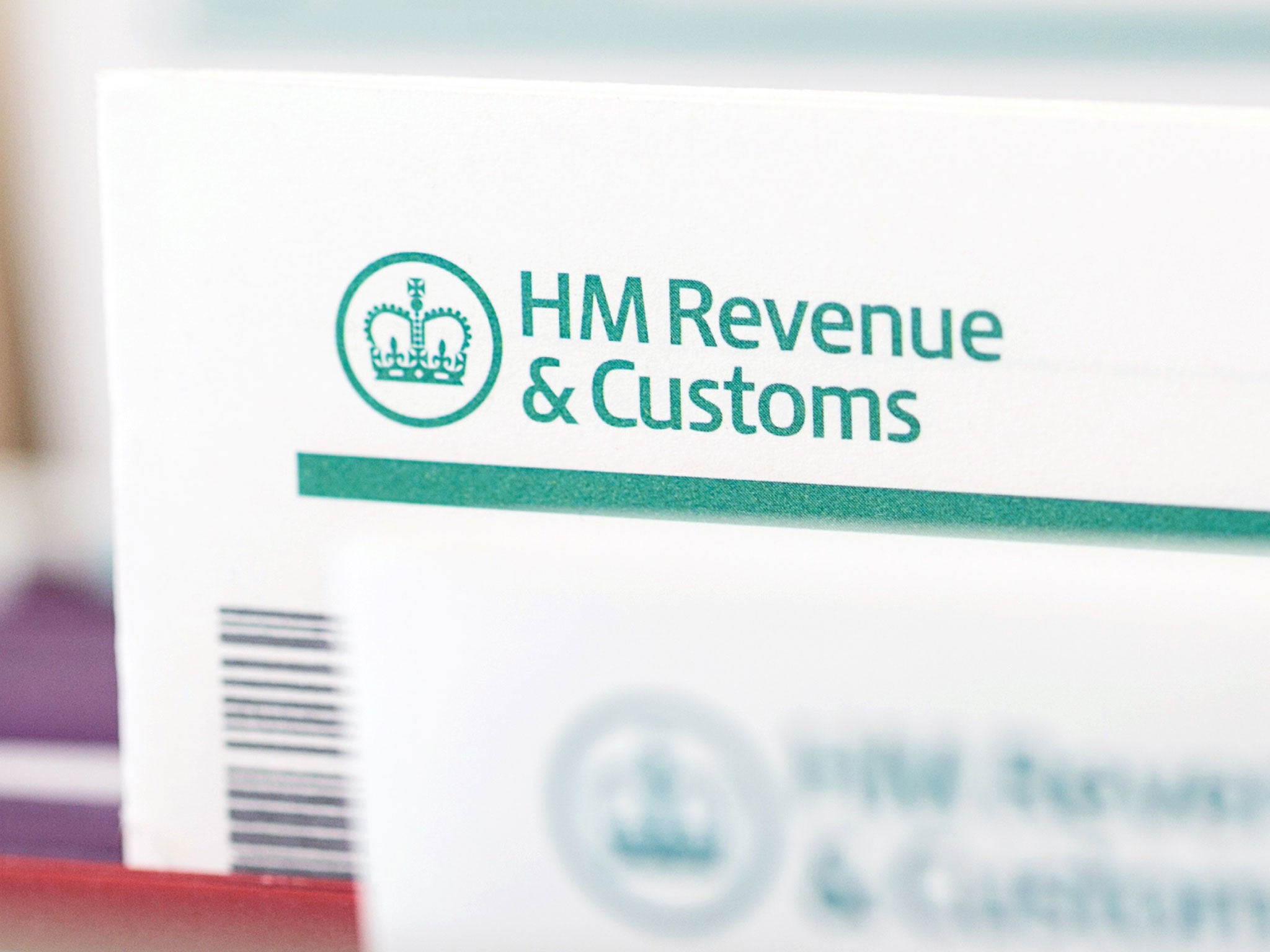There's one tax system for the rich, and one for the rest of us
I once worked in a tax office. It was chaos


Your support helps us to tell the story
From reproductive rights to climate change to Big Tech, The Independent is on the ground when the story is developing. Whether it's investigating the financials of Elon Musk's pro-Trump PAC or producing our latest documentary, 'The A Word', which shines a light on the American women fighting for reproductive rights, we know how important it is to parse out the facts from the messaging.
At such a critical moment in US history, we need reporters on the ground. Your donation allows us to keep sending journalists to speak to both sides of the story.
The Independent is trusted by Americans across the entire political spectrum. And unlike many other quality news outlets, we choose not to lock Americans out of our reporting and analysis with paywalls. We believe quality journalism should be available to everyone, paid for by those who can afford it.
Your support makes all the difference.I once worked in a tax office, so it’s no surprise to me that HMRC boss Lin Homer can’t locate that 2008 email offering information about alleged tax evasion by HSBC clients.
Having signed the Official Secrets Act, I spent a summer as a temporary clerical assistant in the Holland Park tax office, west London, delivering the post and filing.
It was chaos: highly sensitive documents stuffed behind radiators, in piles on the floor, crammed into overflowing shelves, stacked high on desks, and gathering dust in corridors. That was back in the 1960s, and now, even though HMRC operates online, things haven‘t changed. Data gets lost, and customer service is appalling. Last December, the consumer champion Which? made 100 calls to the HMRC helpline – a third were cut off, and the average waiting time was a shocking 18 minutes. In another survey, when asked about dealing with HMRC, one-fifth of the public described the experience as “difficult”.
Homer and her merry band of tax collectors were able to claim nice bonuses, thanks to the low targets for revenue collected. She pocketed £20,000 on top of her £185,000 salary, even though most staff had their pay frozen or were awarded a measly 1 per cent raise.
Productivity? HMRC pursued 150 HSBC clients with secretive Swiss accounts, taking an average of 44 months per case, and managed just one prosecution. If Homer were running Jaguar or Dyson, she would have been shown the exit. Why do we not apply the same standards of efficiency to collecting tax as we do to the running of supermarkets and making cars? Because the system is so complicated it means that anyone with plenty of money to pay financial advisers can exploit loopholes and do deals with HMRC – such as the likes of Vodafone.
There are two ways of approaching the dislikeable necessity of paying tax. The vast majority of us have no choice: PAYE is deducted at source, and then we have to fight to get mistakes rectified, a David and Goliath challenge which can drive sane people to madness.
The self-employed are aggressively harassed by HMRC to complete their assessments on time, and live in fear of bills they cannot pay and haven’t saved for. Small businesses based in the UK operate under a completely different regime from the huge multinational companies such as Starbucks, Amazon and Google, or the private clients of HSBC, or the thousands of non-doms who live in the UK but who possess vast wealth in trust funds carefully structured to minimise tax.
I’ve just paid HMRC more than £26,000 in corporation tax, on top of the thousands in PAYE on my salary. I’m not complaining – I carefully saved the money throughout the year – but how can one person, not a pop star or a footballer, pay a 10th of the sum handed over by Starbucks – a huge company with almost 800 outlets in the UK? As an example of how easy it is to manipulate the tax system, it’s striking that Starbucks has just announced its first “UK profits”, paying about £220,000 in tax on sales of £300m in the UK.
It also paid £11.2m in corporation tax, the final instalment of the £20m it voluntarily agreed to pay in 2012 after a backlash at it having paid just £8.6m in corporation tax in the UK over 14 years despite sales of £3bn. My company is tiny, and its income is derived from my work as a writer and broadcaster, and the accounts are filed at Companies House. My bank is HSBC, but I do not have any offshore accounts.
Tax – like a visit to the dentist – is vile but unavoidable. Yet, according to former Tory treasurer Lord Fink, most people would do anything legal to avoid tax – claiming his own arrangements were of the “vanilla” variety. Tax planning (not “evasion”) is what rich people with good advisers do to pay a lower percentage of tax than the rest of the population.
The difference between “avoidance” and “evasion”, the illegal and the acceptable, varies from one “expert” to the next. If the Government finds aggressive tax avoidance “morally repugnant” why doesn’t it scrap existing tax arrangements and make one size fit all? The reason the rich give so much money to charity and London is full of the world’s wealthiest people is because they don’t pay tax like the rest of us. Full stop.
Strange’s parties were fabulous – if you could get in

I always had a soft spot for the New Romantics, with their ludicrous clothes and lavish make-up. But a visit to New Romantic HQ, the Blitz club in Covent Garden, was always a challenge as Steve Strange exercised a militant door policy, excluding anyone whose clothes didn’t measure up. Spandau Ballet played some of their first gigs there, and the crowd was always made up of the biggest collection of gossipy bitches imaginable, from Marilyn to Boy George.
Steve’s relationship with the multimillionaire Chessie von Thyssen (now Francesca von Habsburg, running her multinational art foundation) was fascinating: they shared a flat for years and were photographed nightly in extraordinary outfits that must have taken hours to assemble. Strange – who described himself as bisexual – said Chessie was “the love of his life”, but was miffed to discover actor Michael Douglas starkers in her bathroom.
Watch Steve’s band Visage performing “Fade to Grey” online to see why he was such an idol in his own irritating but wonderful way. Our paths crossed a few years ago filming in Wales, but after he was discovered with drugs, he was asked to leave. A shame, because – in spite of that door policy – Steve was a sweetie.
I don’t have the fortitude to stick with this TV mess

How many hours a week can you devote to a TV series? Optimistically, I’m ploughing on with Wolf Hall, hardly in the class of great BBC dramas from yesteryear, like Tinker, Tailor or the original House of Cards.
Mark Rylance is beginning to pall, with his “enigmatic” look and one-note approach to any crisis, from miscarriages to beheadings. At least Wolf Hall has a coherent plot – roughly based on a true story. Fortitude on Sky Atlantic is a big expensive mess, a melange of tasty titbits from other recent hits. Haunting title music in the style of the Bridge or Wallender. A snowy setting in the Arctic tundra – reminding me of the blissful Lilyhammer. A weird mismatched couple (she’s chubby and he’s studious) in a nod to Twin Peaks. Every character seems to be in a show of their own. And it’s hard to care about a single one of them.
The French already have fifty shades of DSK
Tonight, UK cinemas will be packed with excited groups of women enjoying Fifty Shades of Grey. I doubt the same will be happening on the other side of the Channel. The French, who seem much more relaxed about these things, have given the film a 12 certificate, so teenagers can see it without an adult. Maybe the French recognise it’s lightweight froth, but what do they consider risqué sexual activity? Their former finance minister, Dominique Strauss-Kahn, facing charges of aggravated pimping, told a court that women regularly “offered” themselves to him, but he participated in only four orgies a year, describing one as “festive fun”.
Can we expect a telly series?
Join our commenting forum
Join thought-provoking conversations, follow other Independent readers and see their replies
Comments